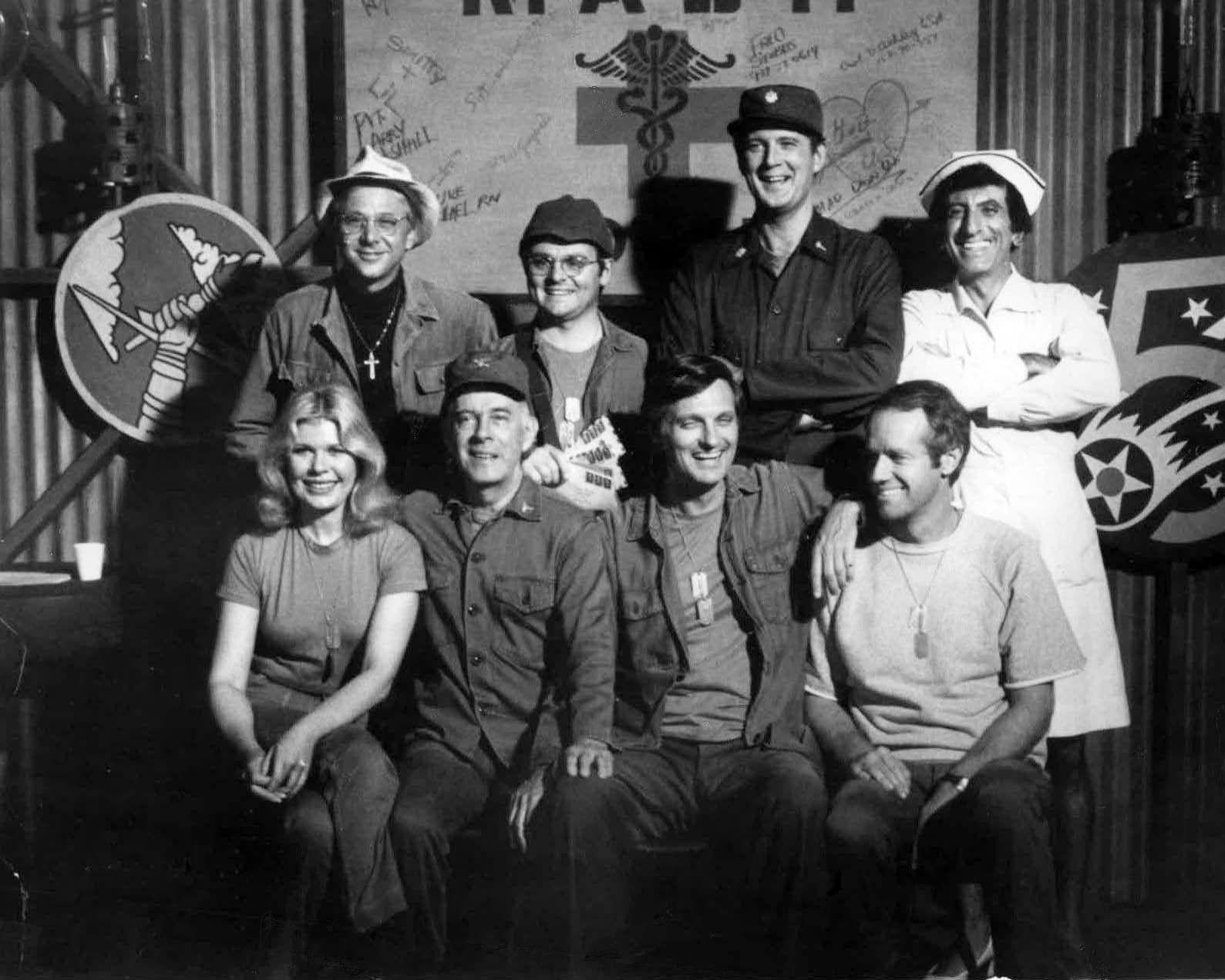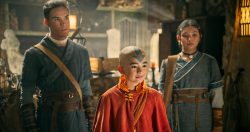Two army surgeons work day and night to save wounded young men turned soldiers during the Korean War. If this sounds like the plot of a war drama, you’ve likely never seen M*A*S*H, the 1970s American TV show that wise-cracked and pranked its way into the hearts of millions of faithful viewers. M*A*S*H was such a cultural phenomenon that after the series finale aired on February 28, 1983, there was a surge of water in the plumbing system of New York City from everyone rushing to the bathroom after holding it through the final moments of the iconic show. The series was a criticism of the senselessness of the Vietnam war told on a Korean War stage, a historic piece of American television that offered a statement against war amidst laughs and unforgettable characters.
M*A*S*H the TV show is a continuation of MASH, the 1970 black comedy war film directed by Robert Altman and loosely based on Richard Hooker’s book MASH: A Novel About Three Army Doctors. Narratively, the film and show are similar, however, the black humor of MASH is what separates the two. (Altman’s ultra-loose storytelling and improvisation are, of course, forsaken for the rigid requirements of the TV sitcom.) The film’s Hawkeye (Donald Sutherland) and Trapper (Elliott Gould) play cruel pranks on their fellow characters and are far from the lovable surgeons they are in the TV show. The film was a harsher response to the Vietnam war. Where MASH, the film, was built on dark stunts and cruel characters, M*A*S*H, the TV show, is lighter and voices its opinion amidst humor and relatively wholesome characters.
The members of the 4077th Mobile Army Surgical Hospital are well-defined and likable, each possessing some key trait that not only makes them memorable but that also introduces many possibilities for stories to feed the sitcom engine. Surgeons Benjamin Franklin “Hawkeye” Pierce (Alan Alda) and Trapper John McIntyre (Wayne Rogers) spend most of their days in surgery repairing numerous wounded men, work which they refer to as “meatball surgery,” but in their off duty moments they’re chasing the nurses, pulling pranks on their straightlaced roommate, Frank Burns (Larry Linville,) and finding other ways to distract themselves from the war they want no part of. Their Commanding Officer, the lovable, ill-equipped Henry Blake (McLean Stevenson), does his best to clean up after Hawkeye and Trapper. Head Nurse Margaret Houlihan (Loretta Swit) and her secret lover, Frank, are their constant adversaries and the general know-it-alls of the camp. Extra-sensory Corporal “Radar” O’Reilly (Gary Burghoff) is the sneaky kid brother figure and right hand to Henry. Corporal Maxwell Klinger (Jamie Farr) is a failed draft dodger who spends his days in dresses and heels trying to get out of the army. Never too far away is their kind hearted chaplain Father John P. Mulcahy (William Christopher) who tries to keep the peace over the whole lot.
The central element of M*A*S*H is the dichotomy between the war’s horrors and humor. Outside of surgery, there’s always a joke to be made, a prank to be pulled, or some army injustice to be made right. There are jokes made in surgery, too, but the show committed to the rule that scenes in the operating room (O.R.) would never be accompanied by a laugh track. Hawkeye, the charming and clever central character, delivers the most poignant remarks on the war. The episodes show the everyday of the 4077th, each with a central, minor conflict to overcome by the end of twenty-one minutes. Most of them are complete with the 4077th’s daily dose of bloodied young men. It’s in the O.R. that the basis for Hawkeye’s constant joking is revealed: it’s a distraction to prevent falling into utter despair. In the show’s finale, titled “Goodbye, Farewell and Amen,” one of the most powerful TV episodes ever conceived, Hawkeye’s years of repairing an endless stream of bodies catch up with him. The episode has the best performance of Alda’s career, one which solidified the show’s dual genres, drama and comedy, as well as M*A*S*H’s place in American history.
In its later seasons, M*A*S*H didn’t feel the same as it did in its earlier years. Trapper and Henry leave in season three, Radar leaves in season eight and Frank in season six. New characters come in to fill their spaces; BJ Hunnicutt (Mike Farrell) fills the space left by Trapper and Colonel Potter (Harry Morgan) takes over for Henry. The new characters don’t try to be their predecessors, and their new personalities keep the show fresh. Charles Emerson Winchester III (David Ogden Stiers) is the last addition; he is the annoying voice of stuffy reason where Burns once spoke. Father Mulcahy and Klinger step into larger roles to maintain semblance to the earlier seasons. When the on-screen war lasted eight years longer than its historical length, only a handful of original characters remained, including Hawkeye and Margaret. In season 11, Hawkeye is more serious and cynical about the war. If there’s a valid complaint to be made of the later seasons of M*A*S*H, it is that the volume of its feelings against the war increased. The point was still valid, but was no longer told as creatively, via the image. Troubled looks at the news of choppers filled with wounded were replaced with monologues against violence. Still despite the changes and occasional misfires, M*A*S*H was popular until the very end.
M*A*S*H has range. There are episodes with so much slap-stick that when they first aired viewers reported falling over from laughter, as well as episodes that made people cry for their beloved characters as if they were family. The show was nominated for more than 100 Emmys and won awards for its profound effect on the way its viewers saw the Vietnam war. Today, it still maintains a small but loyal fan club, and the actors report being called occasionally by their character names. The jokes still land and the sad episodes still crush the hearts of faithful viewers, and, most significantly, its criticism of senseless violence is still relevant today. It is a timeless show that has never once failed to bring a smile to my face.





